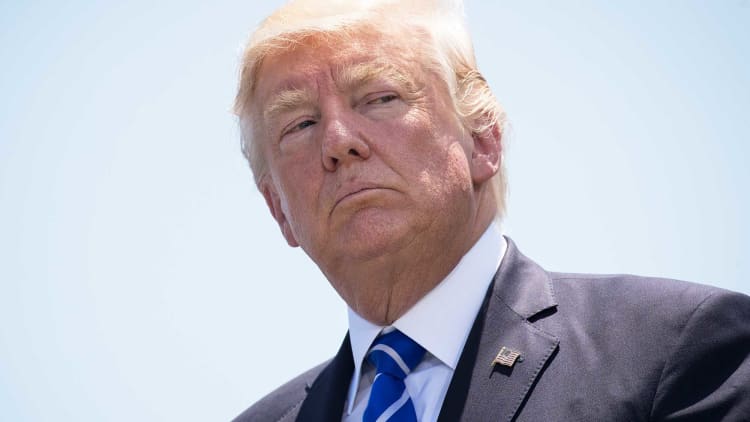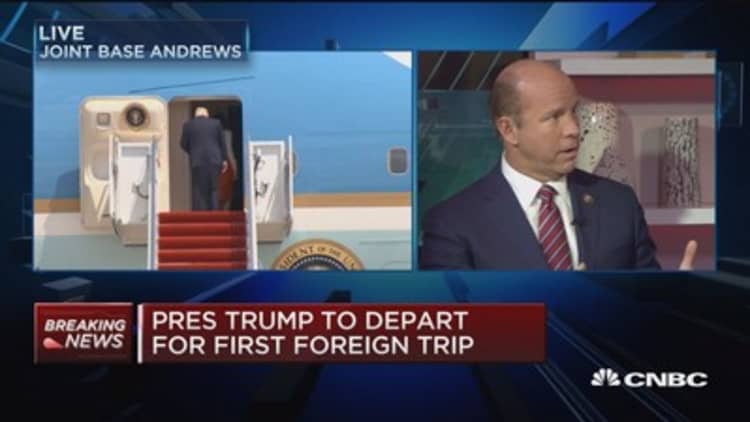
President Donald Trump's 2018 budget informally begins the race toward the goal Republicans
The first obstacle is the halting effort to repeal and replace Obamacare. Until it concludes, Republicans can't enact their tax-cut goals.
The second is the difficulty of passing a 2018 budget. Republicans can't pass their tax cuts until they do that, either.
At
"It's not going to be this year," said Bill Hoagland, a longtime Republican budget aide in Congress, now at the Bipartisan Policy Center. And given the challenges, he predicted, "The only way they can do tax reform at this point is bipartisan."
The once-a-year, Golden Ticket
On taxes, as on health care, Republican ambitions depend on using special congressional rules allowing them to sidestep Senate filibusters and act without any cooperation from Democrats. The technical term is "reconciliation," which means legislation that lines up each year's budget prescription with tax collections and spending plans.
Call it a Golden Ticket. But congressional leaders can only have one of them every year.

House Speaker Paul Ryan and Senate Republican Leader Mitch McConnell are currently using their fiscal 2017 Golden Ticket for health care. They had hoped to send a bill to Trump swiftly — Easter was their initial goal — then use their fiscal 2018 Golden Ticket to pass tax cuts by August.
But the Senate hasn't yet taken up the American Health Care Act that the House barely passed. No one knows what the Senate version will
Until we find out — either because the health-care effort collapses or because a divided GOP reaches compromise — the fiscal 2018 tax reform push cannot seriously begin. Congressional rules only allow one Golden Ticket to exist at a time.
'I don't see how they pass a budget resolution'
Moreover, Republicans may not be able to print a fiscal 2018 Golden Ticket anyway. That would require Republican majorities in the House and Senate to reach a compromise budget.
With the party so deeply divided on priorities, Hoagland says, "I don't see how they pass a budget resolution."
Of course, Congress can move on taxes, and on health care, without a Golden Ticket. But that would require cooperation from at least eight Senate Democrats to overcome a filibuster.
The price of Democratic cooperation would be steep. On health care, it would push "repeal and replace" Obamacare much closer to "preserve and fix" Obamacare. On taxes, it would limit the size of business rate cuts and could force Republicans to abandon goals such as cutting the top personal rate, cutting capital gains taxes, or eliminating the estate tax.
Democrats have also signaled they would insist on
The bottom line: get used to uncertainty about the Trump agenda in Congress. That's all you can count on.


